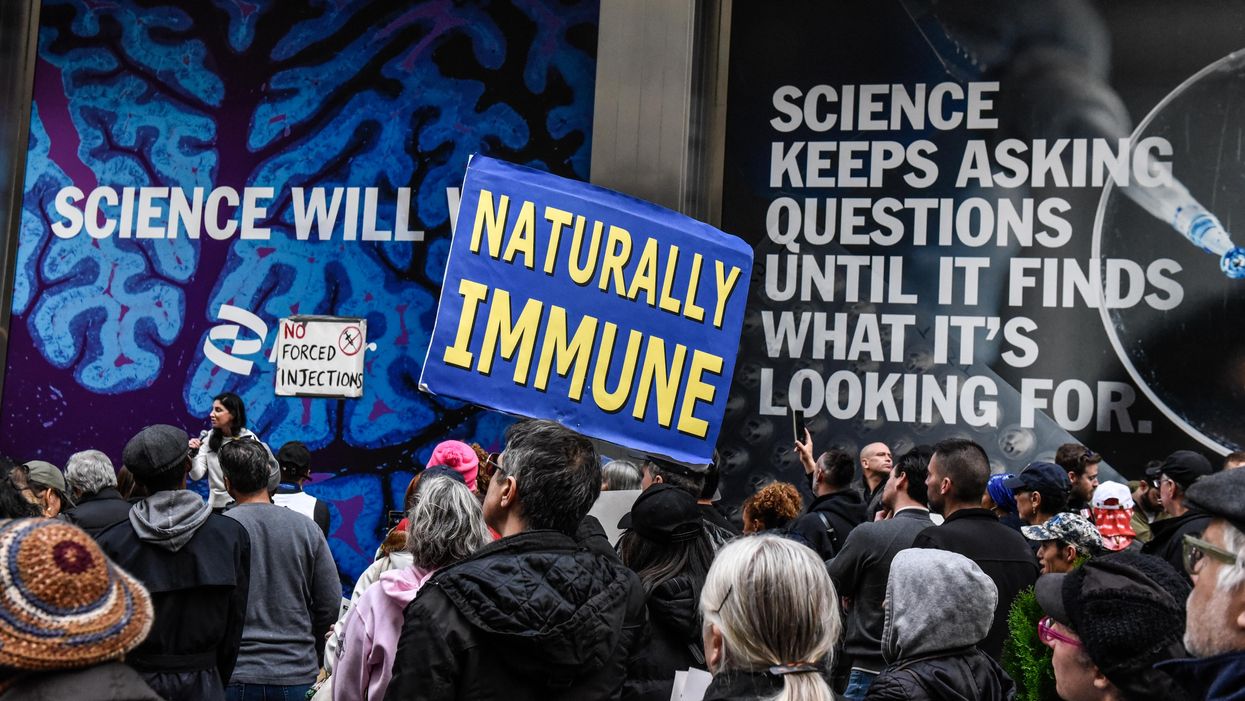In March, the world marked the second anniversary of Covid-19 being declared a global pandemic. The past two years have included a series of tumultuous social and political events that have contributed to the polarization and the continued spread of misinformation, which has kept the nation – and the world – from fully recovering.
Because the battle against Covid is not just a health care issue, some experts believe the path out of the pandemic requires breaking down partisan barriers and halting the spread of misinformation.
Politicization of science
The United States, despite only making up 4 percent of the global population, has been the site of 25 percent of Covid-19 cases throughout the pandemic. This disproportionate rate of infections can be attributed to various factors, but one of the primary causes arises from the politicization of related science, both early in the pandemic and in the ensuing months.
Vaccines have been the center of polarizing debates for years, despite mounting empirical evidence supporting their effectiveness. This, along with suspicions surrounding mask mandates and even the reality of the pandemic, all play into a more extensive trend of denying the merits of scientific findings.
So how did these discrepancies come about, and how did they grow to the deadly levels we have seen in the past few years?
To begin, stressful situations like a pandemic may lead to predispositions towards denial, rationalism and confirmation bias as a defense mechanism against confronting the devastating realities that exist in the moment.
“Denial is a way for people to defend themselves against anxiety,” Mark Whitmore, an associate professor at Kent State University who has studied the spread of disinformation, explained in an interview with CNN. One defense mechanism “is simply to deny whatever the threatening source is exists. In this case, you would simply say, ‘Well the epidemic is a hoax. It doesn't really exist.’”
Under such conditions, public opinion is susceptible to polarized messaging, according to Nina Ashford, former federal government director and clinical assistant professor at the Tufts University School of Medicine.
“We have seen more egregious forms of politicization [of science] happen over the past two years of the pandemic,” she said. “This undermining of the scientific process has trickled down into the public’s trust of vaccines, of public health in general, of medicine … and these tend to be along partisan lines.”
At the beginning of the U.S. outbreak in early 2020, President Donald Trump downplayed the severity of the disease, with many Republican leaders quickly following his lead. Even now that the disproportionate vulnerability of unvaccinated populations has been demonstrated, some media outlets have continued to spread misinformation about preventative measures and the foundational science behind the implementation of pandemic policies. In addition to seeding general mistrust in government, Ashford states, “one of the biggest public health threats coming out of this pandemic is disinformation and misinformation.”
Even with the dramatic shift in policy since Joe Biden became president, “there has been so much damage done in the years before that a lot of this mistrust and disinformation which was sown from the highest levels of government has carried through … even to where people are questioning the credibility of the CDC,” she said.
Individuals and communities across the United States are feeling the effects of these partisan divides: Covid-19 death tolls in red states soared in comparison to their blue counterparts after vaccines were made available, as many Republicans remained reluctant to get the shots. While the death rate has been subsiding, the virus still poses a particularly dangerous risk to vulnerable populations, including low-income individuals, multi-family households, essential workers and those who are immunocompromised.
Solutions require common ground
Experts believe continued efforts to mitigate the impacts of Covid-19 must involve multifaceted approaches, focusing on common goals of preserving the overall wellbeing and social welfare of our families, friends and communities.
“At baseline, Republicans and Democrats tend to want the same outcomes, we just have very different processes of getting there. … At the end of the day, people want to raise their families and live good lives in safe environments,” said Ashford, who argues that bipartisan approaches to public health issues will ultimately be the “best path forward for our democracy.”
In order to combat the spread of misinformation, Ashford stressed the urgency of “having conversations as a nation about how we consume information, how we critically think and analyze this information.”
Ultimately, “the beauty of our democracy is that we did have these two differing views and we know that diversity of thought is a good thing. No one person or group holds the answer, so I would love to see us as a nation get to where we can view our differences as strengths and figure out what that middle ground looks like.”



















Trump & Hegseth gave Mark Kelly a huge 2028 gift